For the villagers of Holercani, waste is not a problem, but an economic asset
December 2, 2022
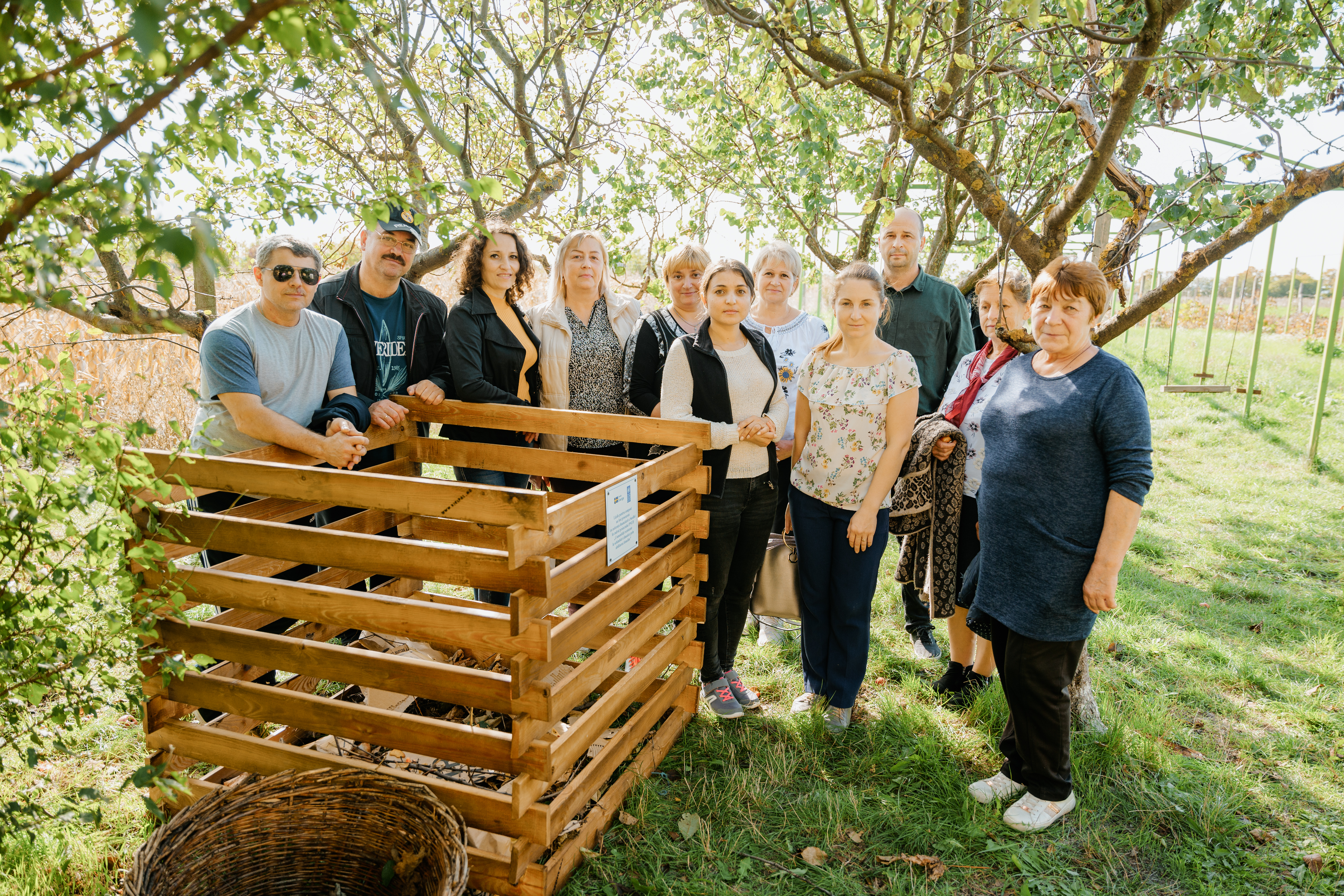
The villagers of Holercani in Dubăsari district turn waste into compost – a natural agricultural fertiliser which is further used to improve the quality of the soil. This became possible with the support of the “Sustainable and resilient communities through women's empowerment” project, funded by Sweden and implemented by UNDP.
Thus, composting bins for organic waste were installed in several households in Holercani, which were trained by the project’s experts on how to use them.
Elvira Almaz is one of the locals who showed initiative and committed to collect organic waste for composting. She explained that in addition to caring for the environment, she wanted to set a positive example for her two children – an eight-year-old girl and a three-year-old boy.
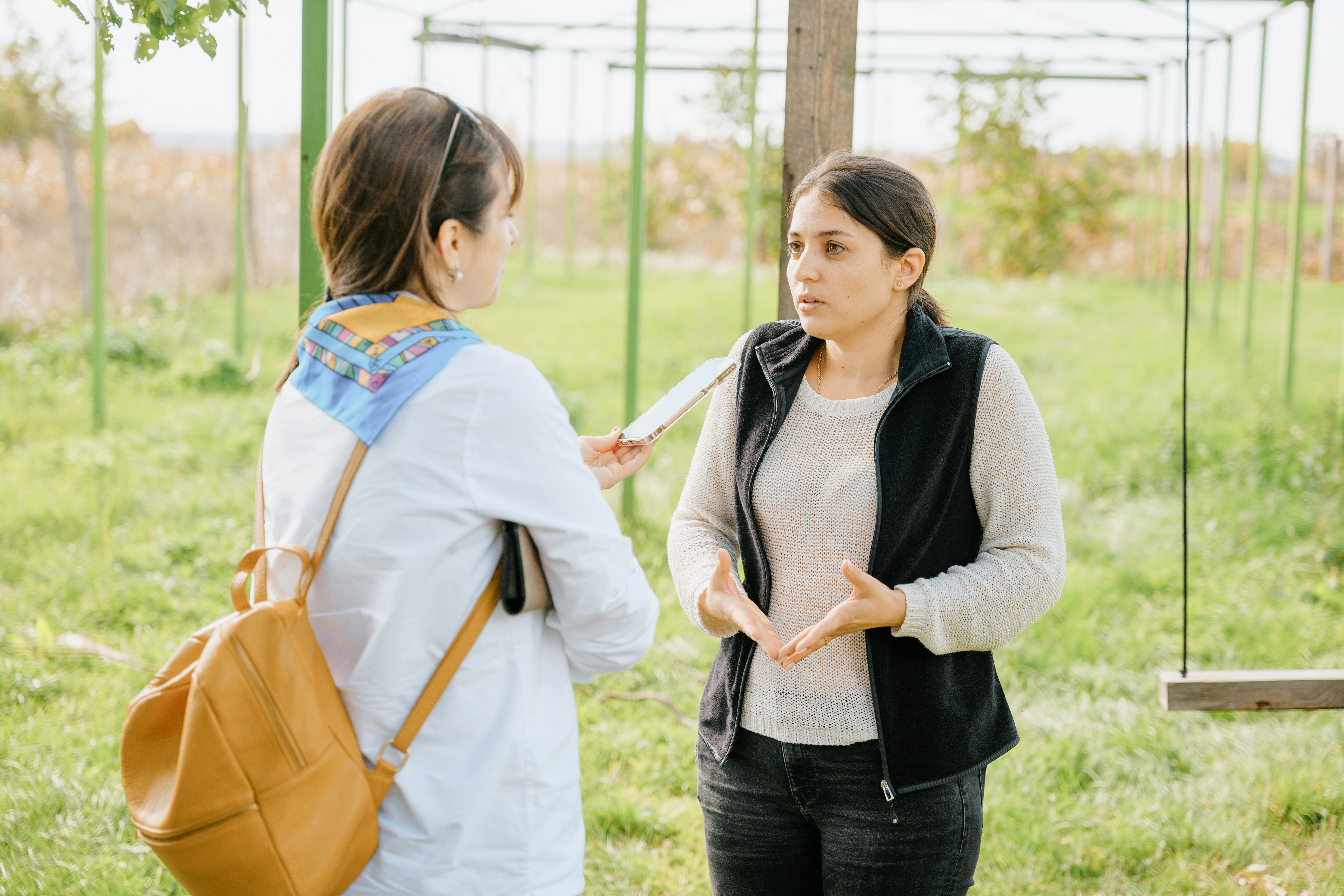
Elvira Almaz
“We all need to be concerned with what is happening around us. We should all get involved in protecting nature, because this is how we take care of our children's future. Every day we throw away peels of potatoes, onions – all sorts of food waste. In fact, with a minimum of effort al this waste can be turned into compost and used as fertiliser. If we succeed with this experiment, we will recommend it to our neighbours, who seems curious about it. In the meantime, we educate our children by engaging them in the composting process. They are the ones who sort the waste. I'm glad they are interested,” said Elvira.
So, more than 15 families from Holercani have pooled their knowledge and enthusiasm to engage in the organic waste composting project. The village's French teacher, Maria Grati, says she didn't hesitate for a moment to join in when she learned about the initiative. On her own initiative, Maria talks to students at school about the importance of separating the waste. “We often discuss about ecology during classes. Even if in Moldova we don't have proper recycling conditions, like in other countries, I try to explain to students why it is important to separate the waste. I also teach them that it is not a good idea to burn the dry leaves in the autumn – they can be stored in the garden and, if processed in a special way along with the organic waste, they can be turned into compost. We need to encourage young people to act responsibly, since they are the future of our country. As a matter of fact, I had been composting at home even before this project started. I’ve been doing it for several years on my own initiative, but I didn't know all the ins and outs. After attending the first information event, I started to put into practice the knowledge I gained and follow the correct steps for proper composting,” explained Maria Grati.
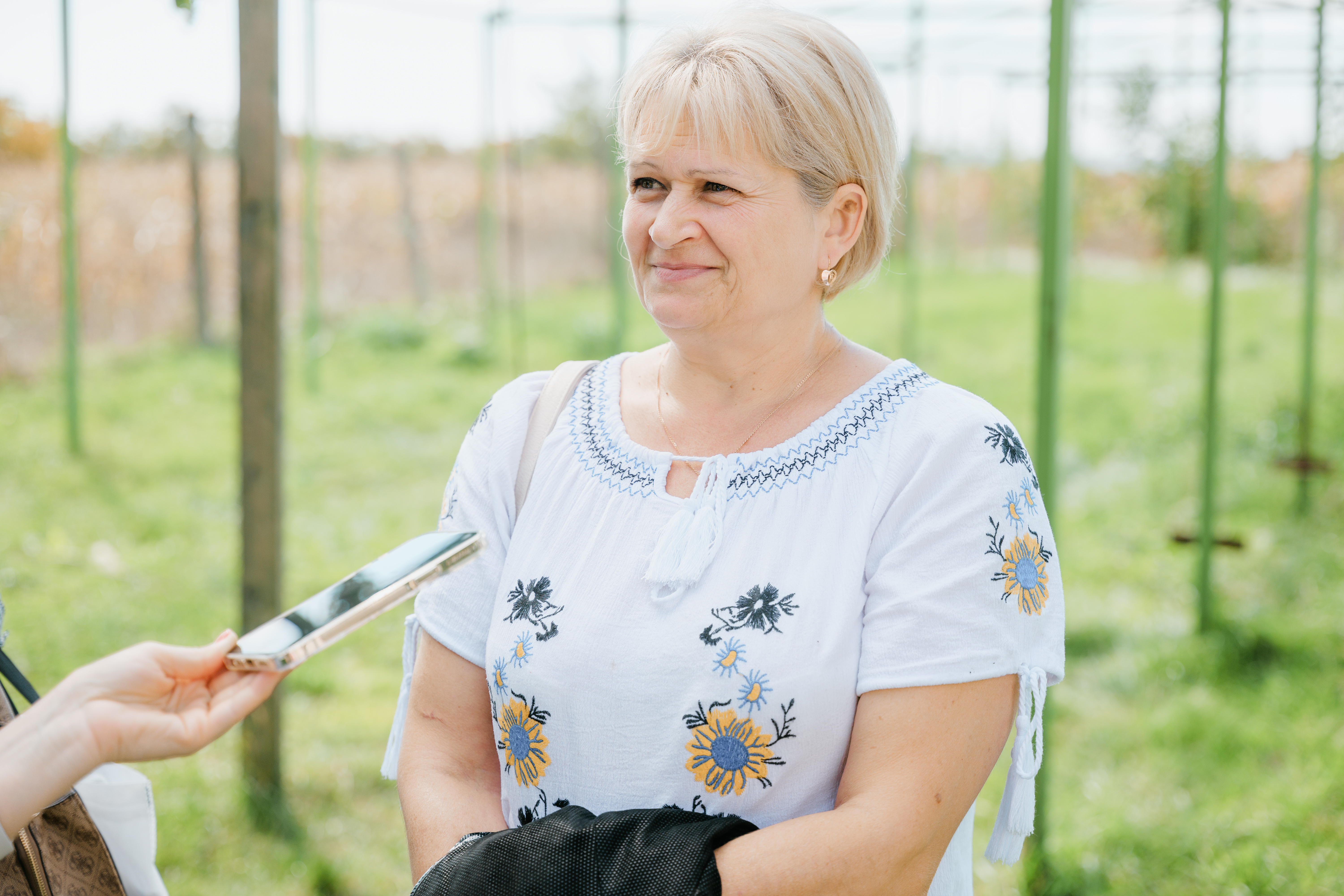
Maria Grati
The solutions to environmental problems are often within everyone's reach, is convinced the mayor of Holercani, Tudor Tanasev. Changes, he believes, happen in small steps, starting in the family.
Inspired by the experiences seen abroad, he decided to encourage his fellow villagers to act more responsibly towards nature. “Thus, through this initiative, we reduce the amount of waste going to the landfill. Unfortunately, today the waste is thrown away randomly which is not good. In the long run, we will all suffer from such an attitude,” notes the mayor.
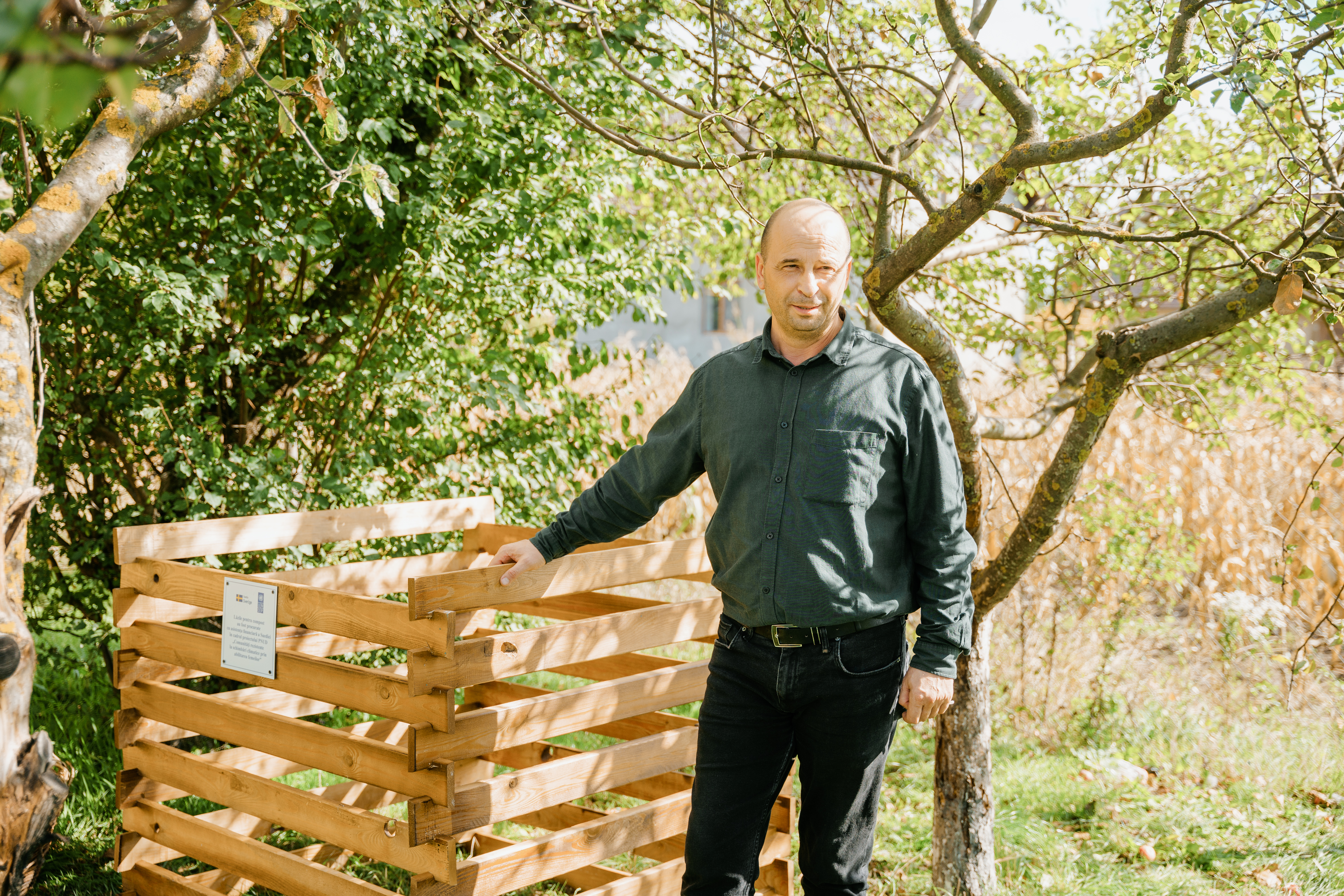
Tudor Tanasev
The 15 households that agreed to process the waste and turn it into compost were trained on the process and the correct use of the compost bin.
Aurelia Bahnaru, a UNDP consultant, says the golden rule of composting is “layering and diversifying”: “We need to have as much and as diverse waste as possible. As for layering: one layer should be of dry waste, carbon-rich: dry leaves, twigs and the next layer should be nitrogen-rich material, for example green leaves. The compost pile should be periodically watered. It is important that the compost bin is in a shady place out of direct sunlight. At the end of this process, the household will end up with a natural fertiliser for the soil, while also protecting the environment.”
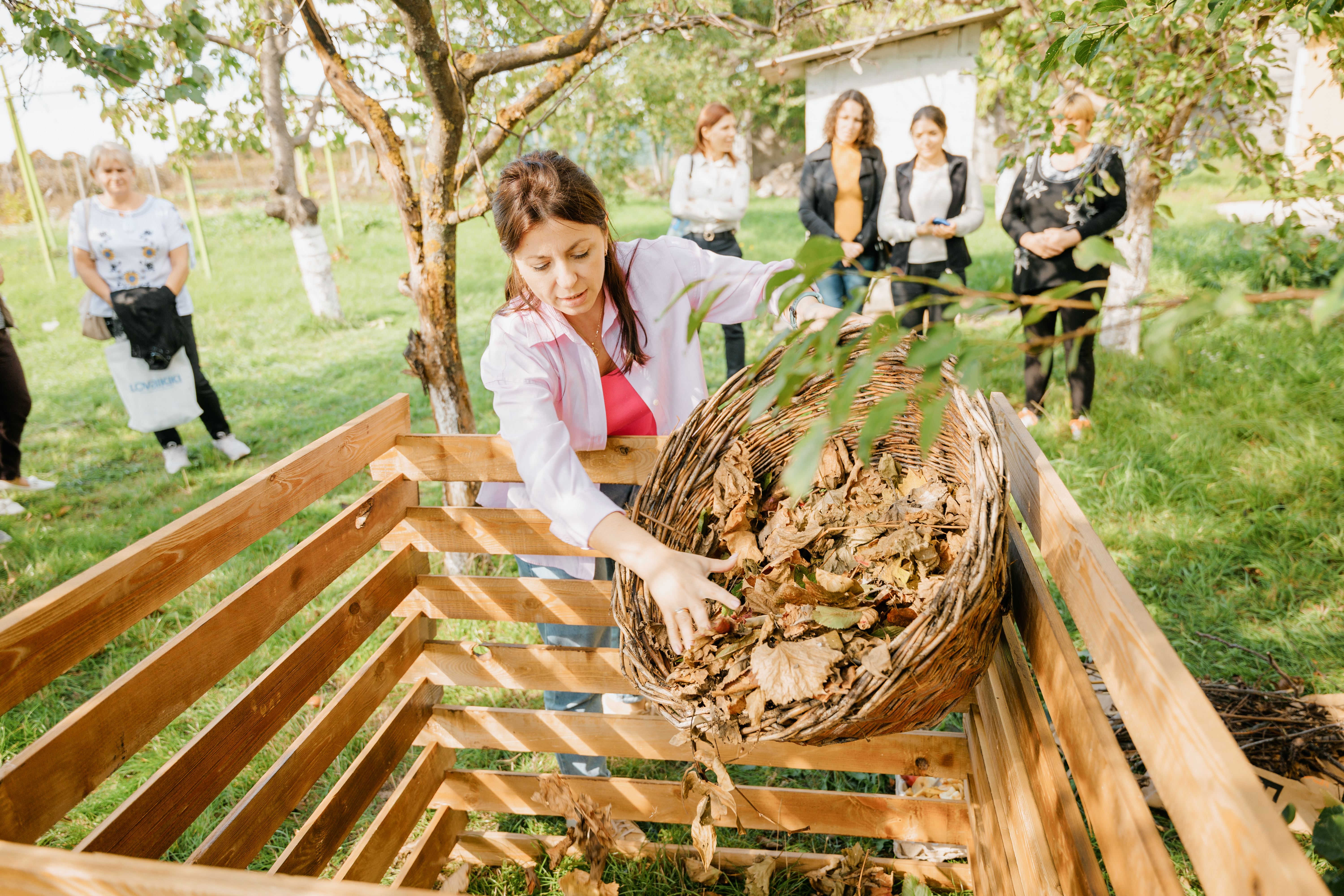
Aurelia Bahnaru
“I really hope that the initiative will have a domino effect and that soon most villagers will use this method of waste processing,” said the mayor of Holercani, Tudor Tanasev.
Likewise, the mayoralty of Holercani procured a leaf shredder and a mower to take care of the green space in the village, with the support of Sweden and UNDP, provided in the framework the project “Sustainable and resilient communities through women's empowerment”.
The project “Sustainable and resilient communities through women's empowerment”, implemented by UNDP Moldova, provides grants of up to US$16,000 to 30 communities in Moldova to implement initiatives aimed at increasing community resilience to climate change, reducing disaster risks and contributing to sustainable local development.

 Locations
Locations